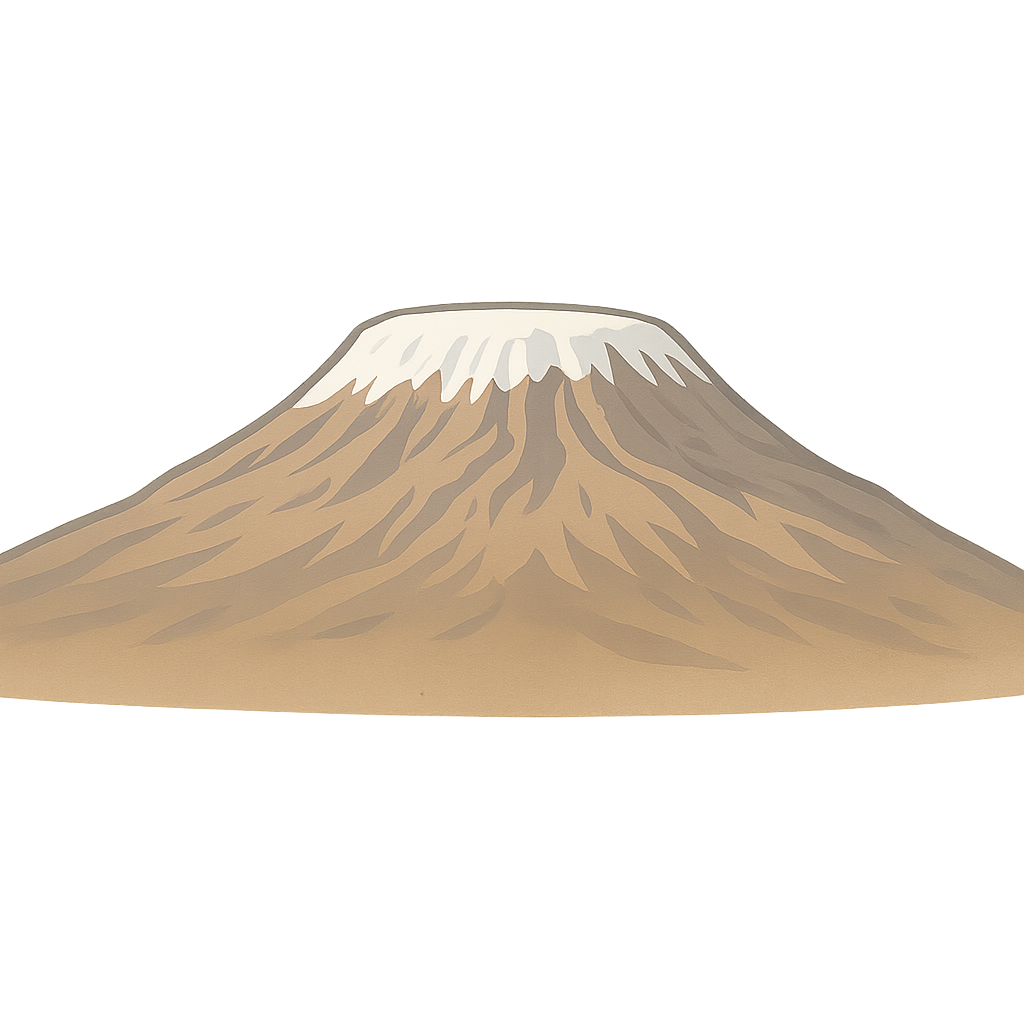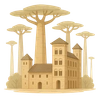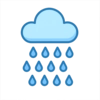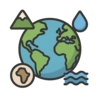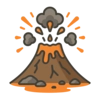The Story of Mount Kilimanjaro
The hot African sun warms my lower slopes, where green forests burst with life and monkeys chatter in the trees. Down below, on the great savanna, I watch herds of elephants and tall giraffes wander peacefully. But if you look up, way up, you will see my secret. I wear a crown of pure white snow and sparkling ice, which feels strange and wonderful under the equatorial sun. It’s a puzzle, isn’t it? A mountain so tall that its head is always in the cold, clear sky, even in the warmest place on Earth. I stand alone, a giant watching over the land. I am Mount Kilimanjaro, the roof of Africa.
My beginning was a loud and fiery one. Hundreds of thousands of years ago, around 750,000 years ago, the ground deep beneath the Earth began to rumble and shake. Three fiery hearts of melted rock, called magma, pushed their way up, up, up toward the sky. With a mighty roar, I was born. I grew from three main spots, and today they are my three peaks, like three brothers standing shoulder to shoulder. Shira is the oldest and wisest, but he has grown shorter over time. Mawenzi is rugged and craggy, with a wild spirit. And Kibo is the tallest, the one who wears the crown of ice. My fiery days of erupting are over now. I am what scientists call a dormant, or sleeping, volcano. I am a gentle giant, resting peacefully.
For centuries, my slopes have been a home. My first friends were the Chagga people, who discovered that my soil was rich and dark, perfect for growing food. They built their villages among my green foothills, where the air is cool and fresh. The ice and snow on my peak melt in the warm sun, sending streams of clean, cool water trickling down my sides. This water gives life to the Chagga people’s farms, helping them grow sweet bananas and fragrant coffee beans. They learned to live with me, understanding my moods and respecting my power. I provided them with everything they needed to live, and in return, they cared for my forests and treated me as a sacred and powerful guardian.
For a long time, it was just me and my local friends. But then, visitors started to arrive from far away. In 1848, a European explorer named Johannes Rebmann was traveling in Africa when he looked up and saw my snowy peak. He was amazed. He rushed to tell people in his country about the snow-capped mountain he had seen, but they laughed and didn't believe him. “Snow in hot Africa?” they said. “Impossible.” It wasn't until many years later, in 1889, that three brave climbers proved him right. A German scientist named Hans Meyer, an Austrian climber named Ludwig Purtscheller, and their brilliant local guide, Yohani Kinyala Lauwo, decided to climb to my very top. It was an incredible challenge. They had to journey through my different worlds—first the thick, humid rainforest, then across rocky ground where only small plants grow, and finally onto my icy, windy summit. It took great courage and teamwork, but together, they made it to the top.
Today, I continue to watch over Africa. People from all over the world come to visit me. They come to climb my slopes, testing their strength and finding a quiet courage inside themselves. The journey is hard, but it unites them. Strangers become friends as they help each other reach the summit. My snowy crown is smaller than it used to be, which reminds people how important it is to take care of our beautiful planet. But I still stand tall, a beacon of hope and strength. I hope to inspire everyone to face their own challenges in life, to climb their own personal mountains, and to remember that we can achieve amazing things when we work together and never give up.
Activities
Take a Quiz
Test what you learned with a fun quiz!
Get creative with colors!
Print a coloring book page of this topic.

